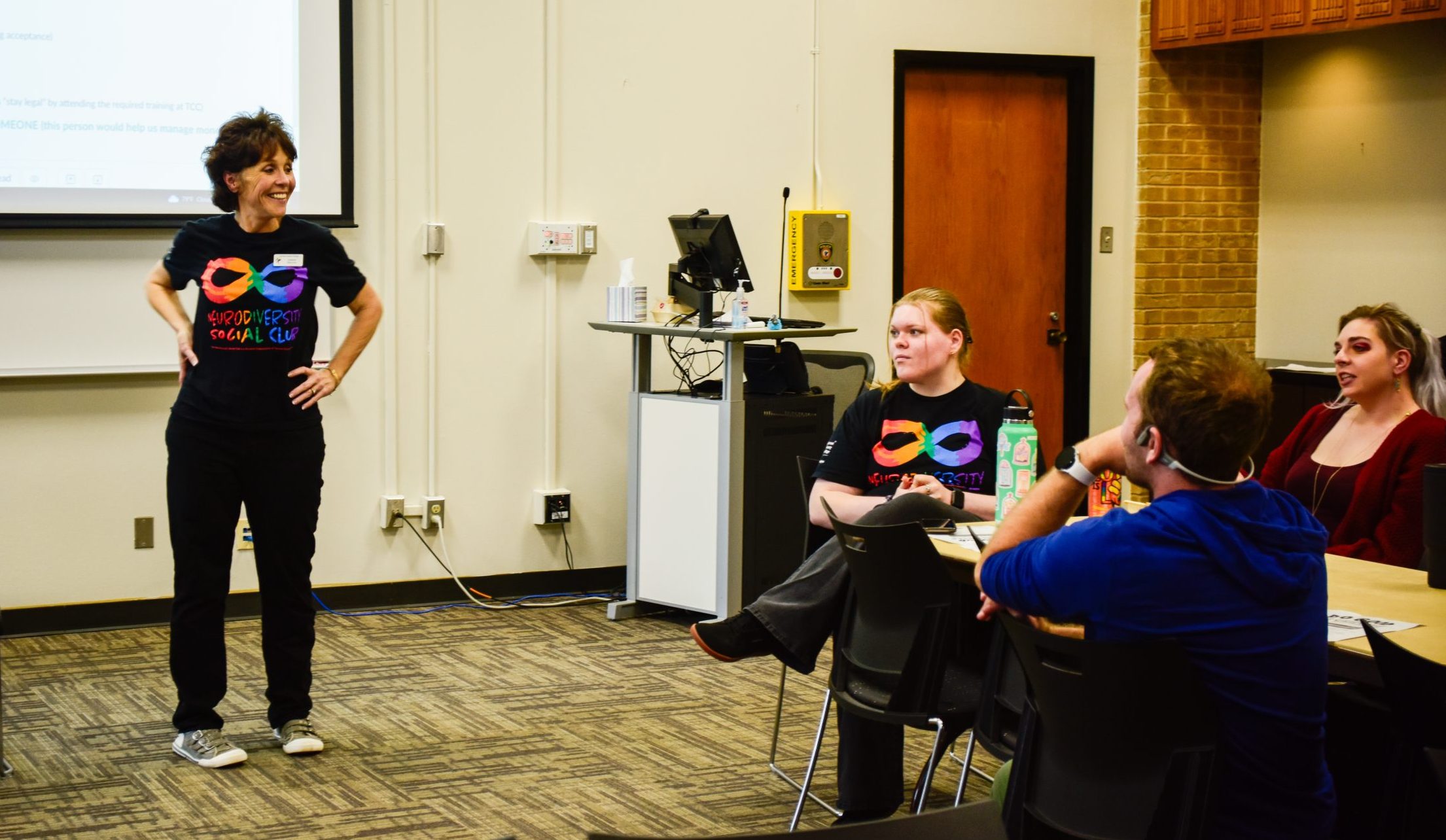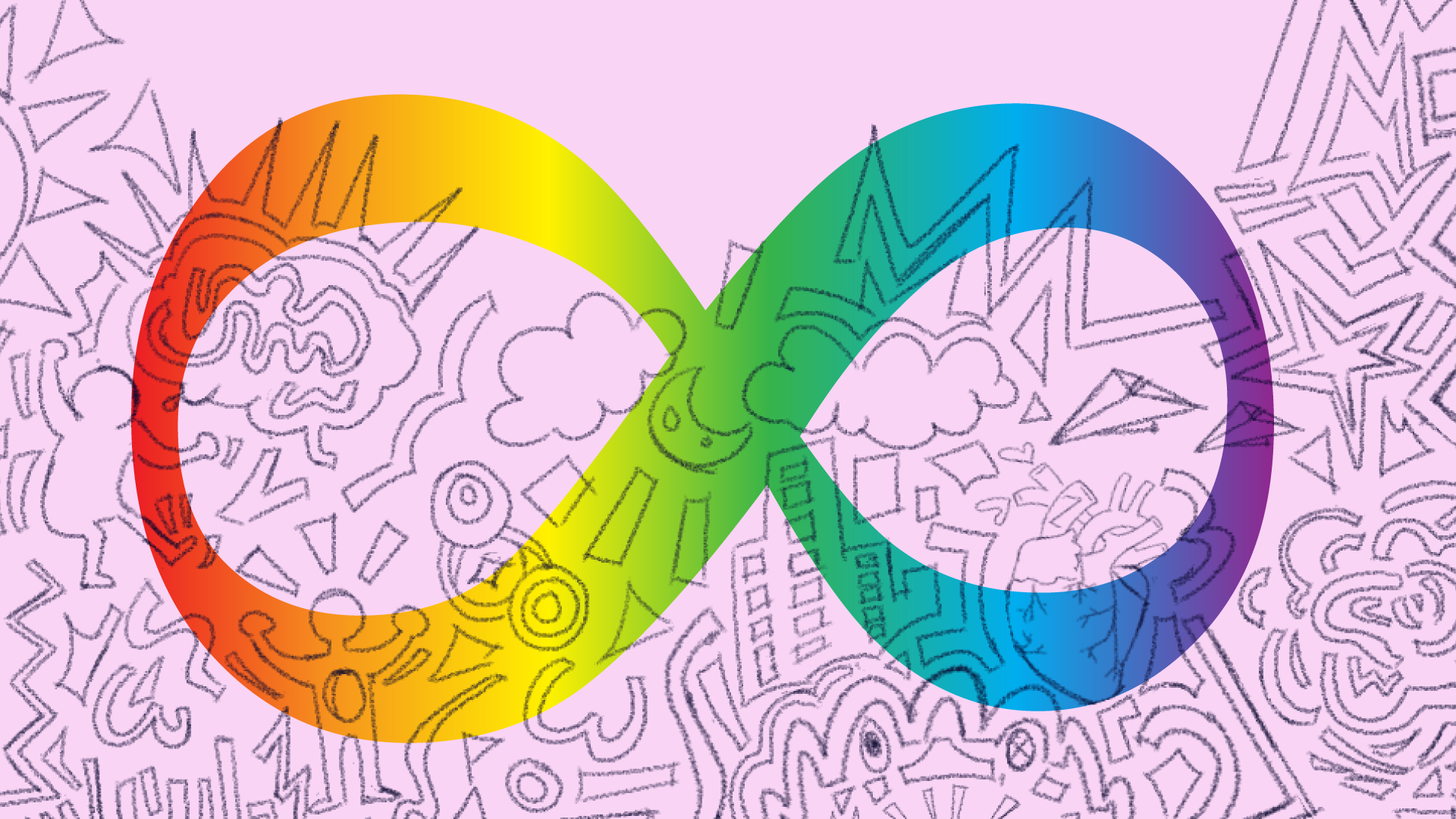XAVIER BOATNER
campus editor
xavier.boatner@my.tccd.edu
Finding comfort in a judgmental world isn’t easy, but the passionate members of the NE neurodiverse club are doing everything they can to create judgment-free zone for autistic minds far and wide.
The neurodiverse club holds their meetings every Thursday from 3:30 to 5:00 in NSTU 1506. During said meetings, club members lend their attention to NE speech communications department instructor Amber Meyers, for information and plans on upcoming club activities like club collaborations, fundraisers, field trips, scholarship opportunities and more.
As discussed during the club’s recent meeting, not only are there many special activities to look forward to, but there is also a mission – a goal – that the club has set out to accomplish this semester.
This year’s freshman class were previously identified by the CDC as autistic at a rate of 1 in 54 students, which has resulted in more students with accommodations now than ever before, Meyers wrote.
“The CDC released new numbers this year,” she wrote. “The new estimate is based on current 10-year-olds in American public schools. That number is 1 in 38 students diagnosed with autism! Additionally, ADHD students are more likely to attend community colleges than universities and the rate of diagnosis of ADHD continues to grow as well. Are colleges ready for that new kind of student?”

NE speech communications department instructor Amber Meyers, the adviser of the club, presents to club members their plans to expand in the future.
The ambitious minds behind the club are working to make TCC the place for all neurodivergent students to blossom into the best possible version of themselves and thrive in new and imaginative ways.
“When students are connected socially to a campus, the research proves that GPAs go up, retention rates improve and graduation rates increase,” Meyers wrote. “Thus, we believe that every college campus needs a neurodiversity social club to support the needs and viewpoints of neurodiverse students.”
One of the most prolific goals the club is aiming to achieve is to branch out and take social clubs like it beyond what currently exists in the state.
“I want to duplicate this club and take it statewide,” Meyers said during the meeting.
TCC’s neurodiverse club is currently the only neurodiversity social club in all of Texas. Every other district and campus across the state has programs and support groups spearheaded by school disability accommodations departments.
“Students need a place where they can be themselves – a judgment-free zone,” Meyers said.
NE student Sebastian Rodriguez said it was important to explain to neurotypical people what it means to be neurodivergent and erase the stigma that has surrounded autistic people.
“I want to bring light on neurodivergence, kind of spread the word on what neurodivergence is and kind of bring the fun out of it,” he said. “Because in society nowadays, a lot of people don’t have a general idea of what being neurodiverse is, or having Aspergers, or being autistic, or having ADHD and a lot of people seem to be very misinformed on what it means to be neurodivergent. I wish to show people what a neurodivergent person could be instead of having people say how it’s a disability or an obstacle or something like that.”
A core aspect of the club’s appeal is found in its atmosphere. Rodriguez, who prior to becoming a club member found it difficult to find people who he could relate to, found value in the club’s accepting sense of community.
“Having a community helps because it allows people to be more open and free to express themselves or who they are rather than just wear a mask to appeal to somebody else’s interests,” he said. “I feel like when people wear those masks, it kind of drops their self-esteem a lot and rids them of the confidence to be who they truly are rather than to be something for someone else.”
NE student Marina Maranto said the club is an inclusive space that lends a helping hand to neurodiverse minds in need.
“A lot of us don’t make it through college,” Maranto said. “There’s just not enough support, help or resources for us and we get shut off from what little community we had back in high school or those early school days. We’re kind of just thrust into the world where most of us, even if you’re neurotypical, get thrust into the world without that help or support, but even more so with us. We are just, like, completely out of depth and out of our zone. A lot of our routines have been changed. Our whole life has been upended that isn’t as distressing for someone who is neurotypical.”
Marina said getting to be themselves, getting to help each other, getting to continue moving forward with academic research and just continuing to strive in their education is what mattered most to her.
To learn more about the Neurodiversity Club, reach out to club advisor amber.meyers@tccd.edu.

